Our Library
Explore our publications, from research papers and series to educational materials, covering all aspects of conflict transformation and peace promotion.
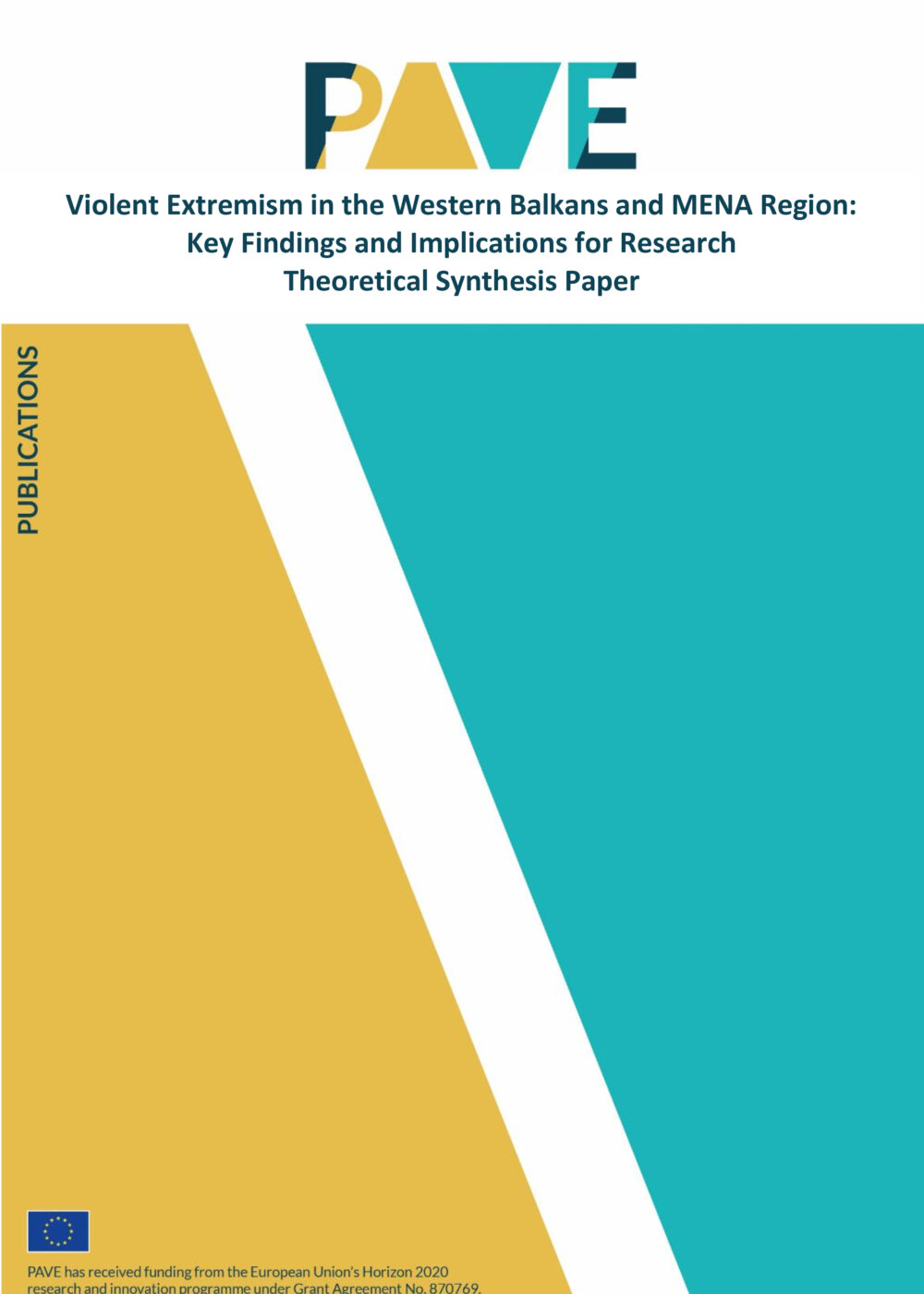
Violent extremism in the Western Balkans and MENA region:Key findings and implications for research
The PAVE project applied an interdisciplinary, participatory and inter-regional approach whose main objective was to advance evidence-based knowledge on violent extremism in MENA and the Western Balkans and to strengthen policy-makers’ and community leaders’ capacity in effective prevention of violent extremisms.
- Year2023
- Author(s)Maja Halilovic Pastuovic, Johanna-Maria Hülzer, Gillian Wylie
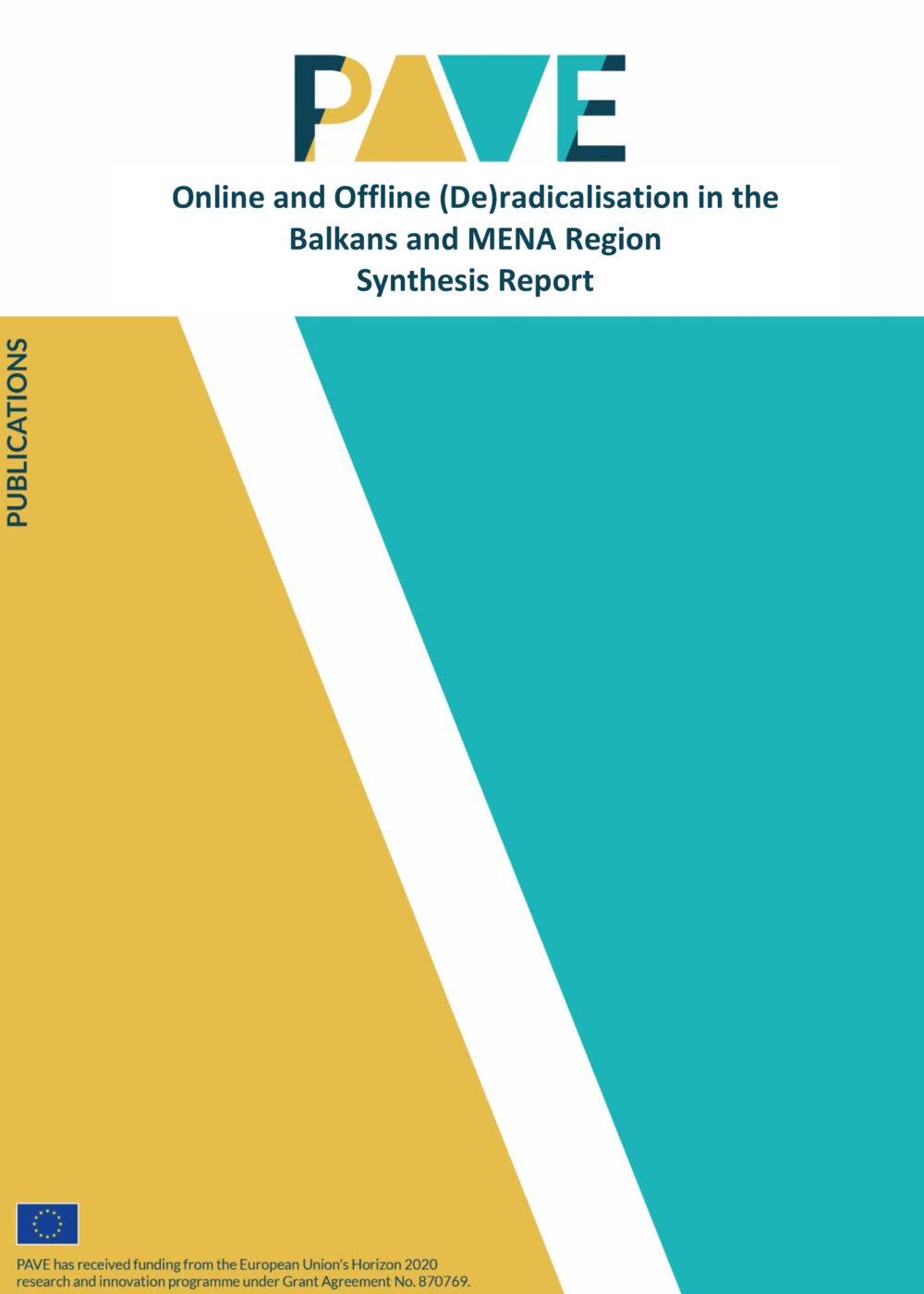
PAVE synthesis reportOnline and offline (de-)radicalisation in the Balkans and MENA region
This report provides a synthesis of studies on vulnerability and resilience of communities to religious and ethno-political radicalisation in the Western Balkans and MENA region. It summarises findings relating to trends in ethno-political and religious extremism and online vs. offline dynamics of radicalisation.
- Year2022
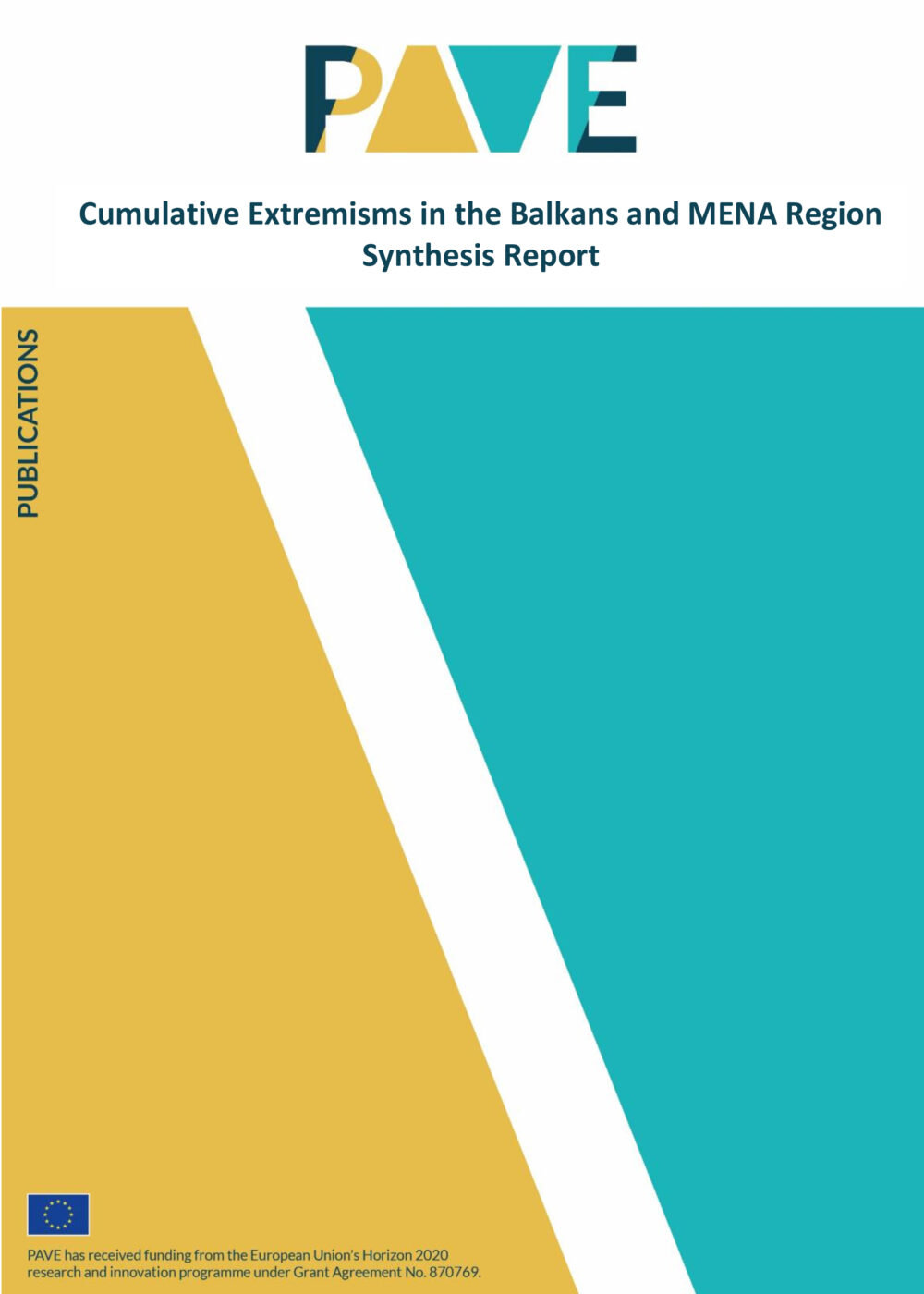
PAVE synthesis reportCumulative extremisms in the Balkans and MENA region
This report compares findings on cumulative extremisms across six different countries in the Western Balkans and the MENA region. Focusing on Bosnia and Herzegovina, Kosovo, North Macedonia, and Serbia, as well as Lebanon and Iraq, it is aimed to create a synthesis of different empirical insights from a set of field-based studies carried out within the context of the PAVE project.
- Year2022
- Author(s)Isak Svensson, Desirée Nilsson
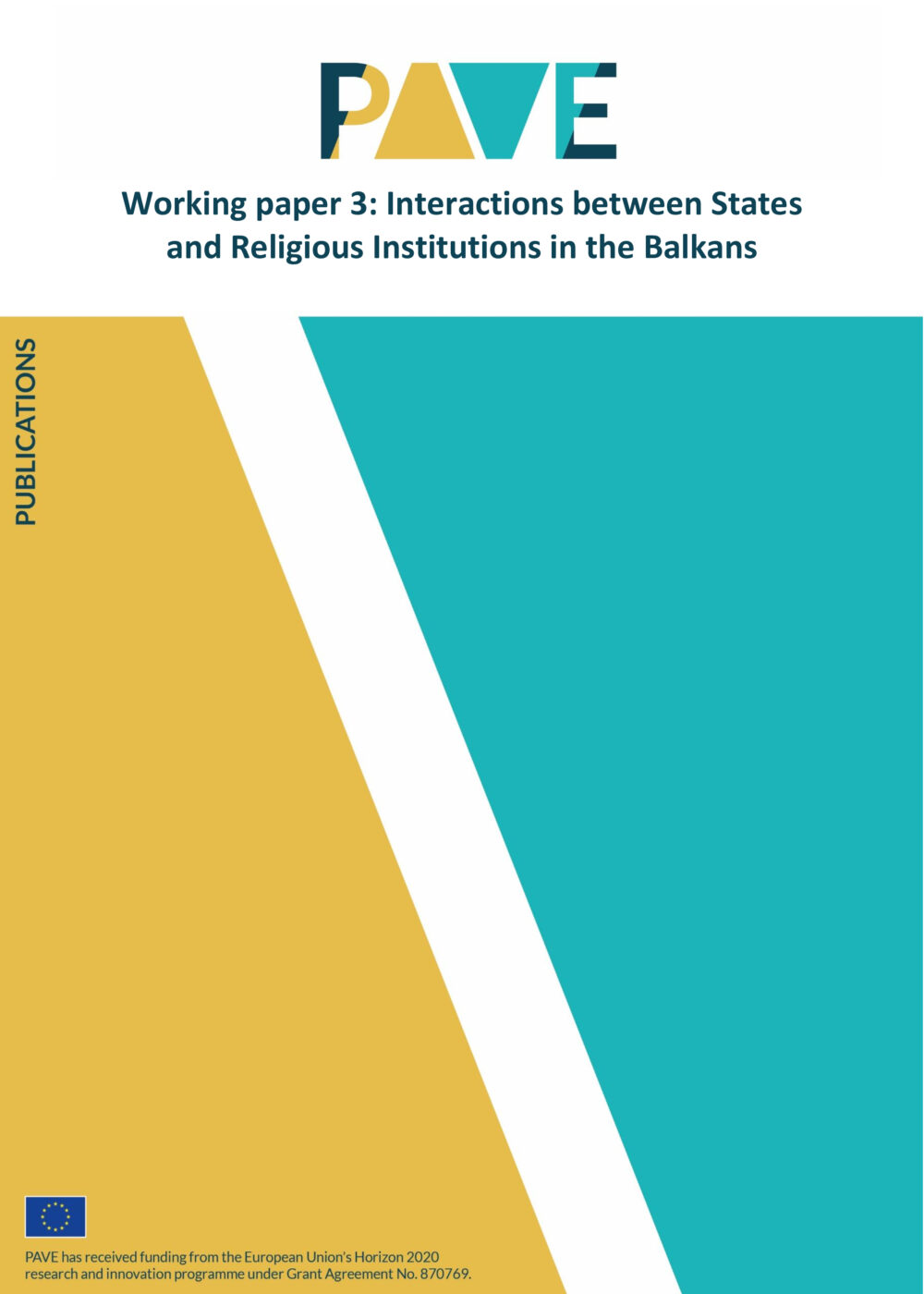
PAVE working paper 3:Interactions between states and religious institutions in the Balkans
Interactions between states and religious institutions in the Western Balkans are intricate and can have an impact on fuelling or preventing violent extremism. Two countries in the Western Balkans were the focus of the PAVE project’s research for this report: Bosnia and Herzegovina and Serbia.
- Year2022
- Author(s)Maja Halilovic Pastuovic, Goran Tepšić, Nemanja Džuverović, Sead Turčalo, Jelena Brkić-Šmigoc, Mirza Smajić, Veldin Kadić, Muamer Hirkić, Gillian Wylie
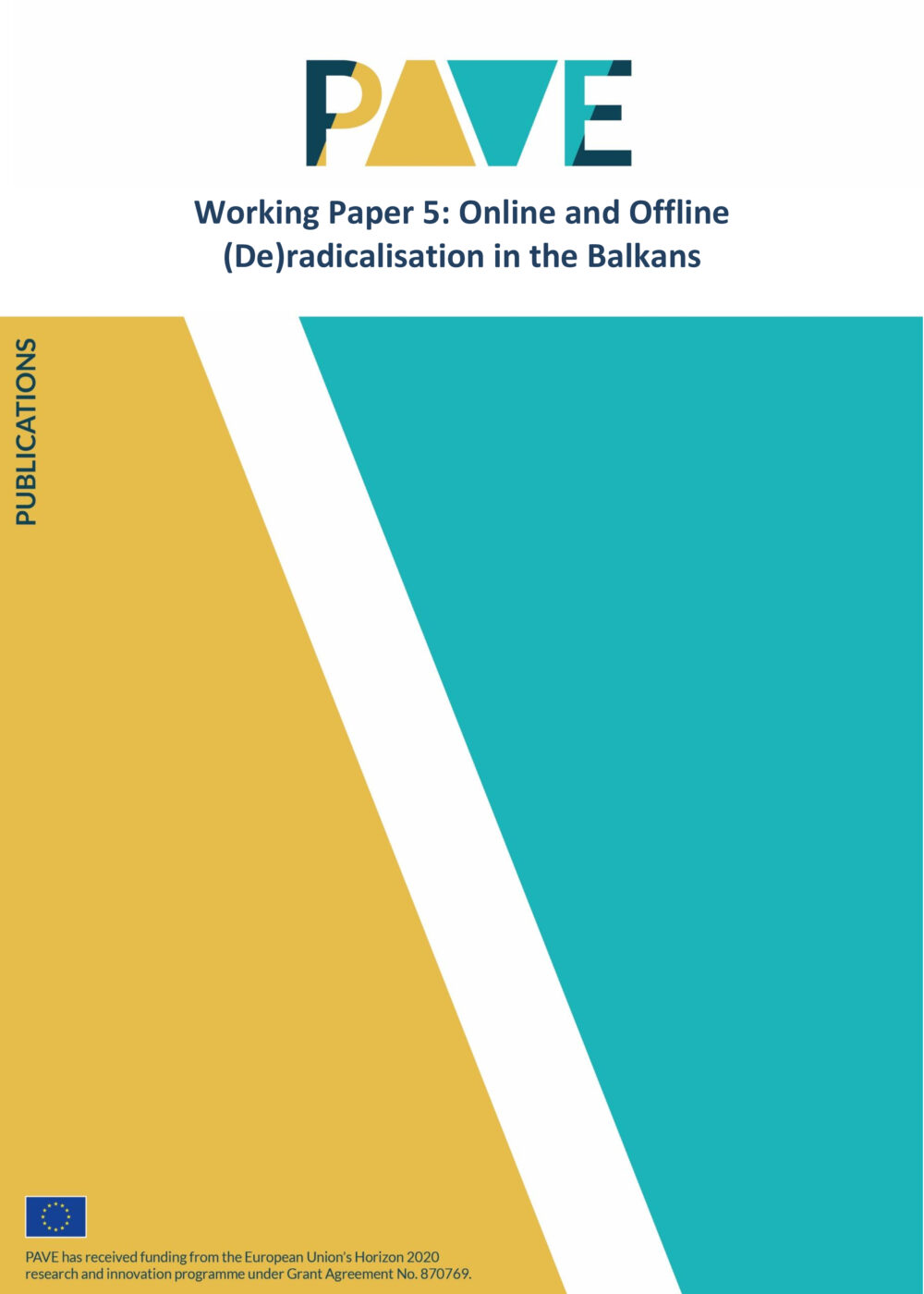
PAVE working paper 5:Online and offline (de-)radicalisation in the Balkans
This report zooms in on the factors of community vulnerability and community resilience to religiously inspired and ethno-political radicalisation in the Western Balkans, with a focus on Kosovo and North Macedonia.
- Year2022
- Author(s)Ramadan Ilazi, Ardit Orana, Teuta Avdimetaj, Bledar Feta, Ana Krstinovska, Yorgos Christidis, Ioannis Armakolas
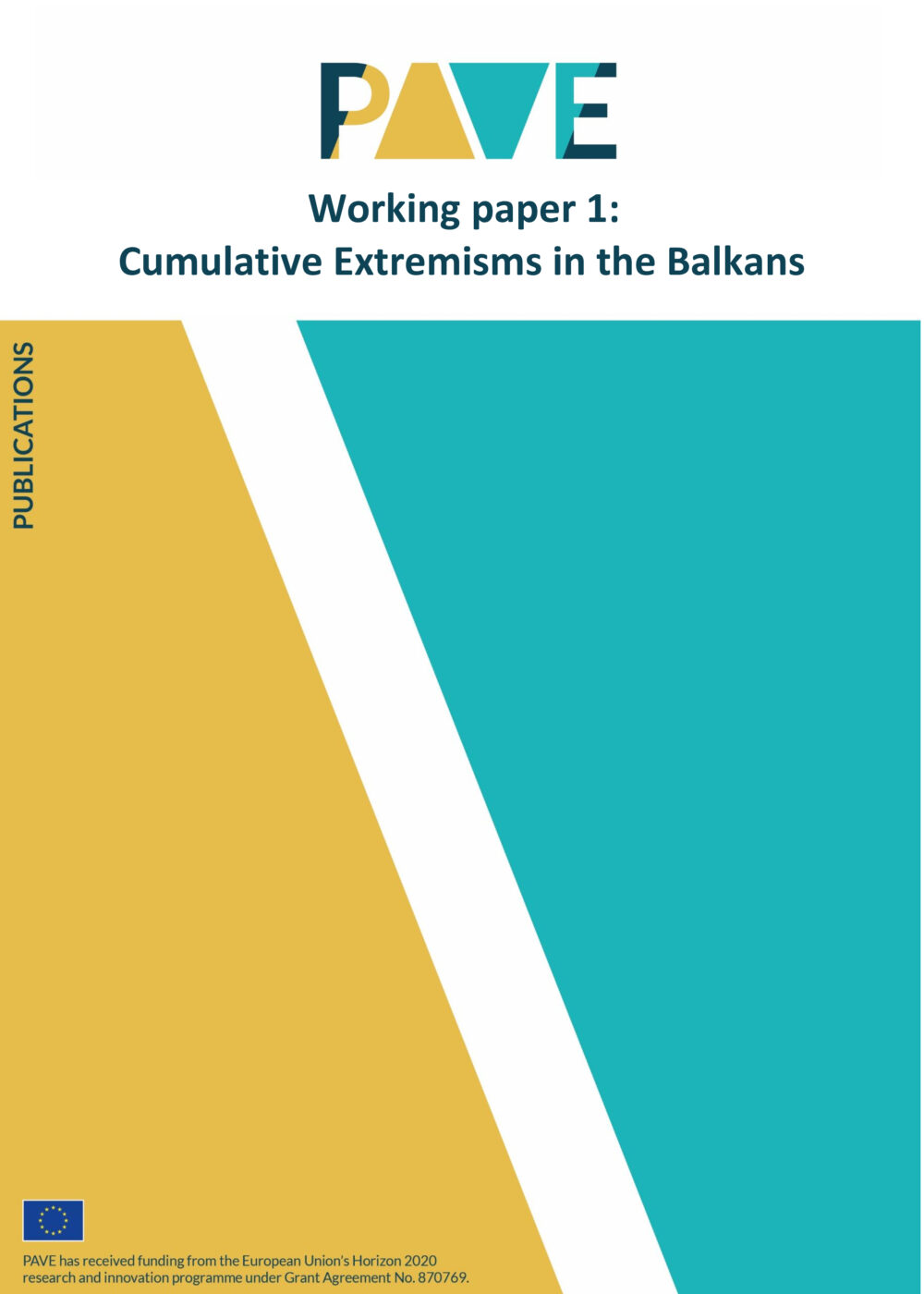
PAVE working paper 1:Cumulative extremisms in the Balkans
This report summarises the PAVE project’s findings on cumulative extremism in the Western Balkans.
- Year2022
- Author(s)Sead Turčalo, Jelena Brkić-Šmigoc, Mirza Smajić, Veldin Kadić, Muamer Hirkić, Maja Halilovic Pastuovic, Goran Tepšić, Nemanja Džuverović, Gillian Wylie
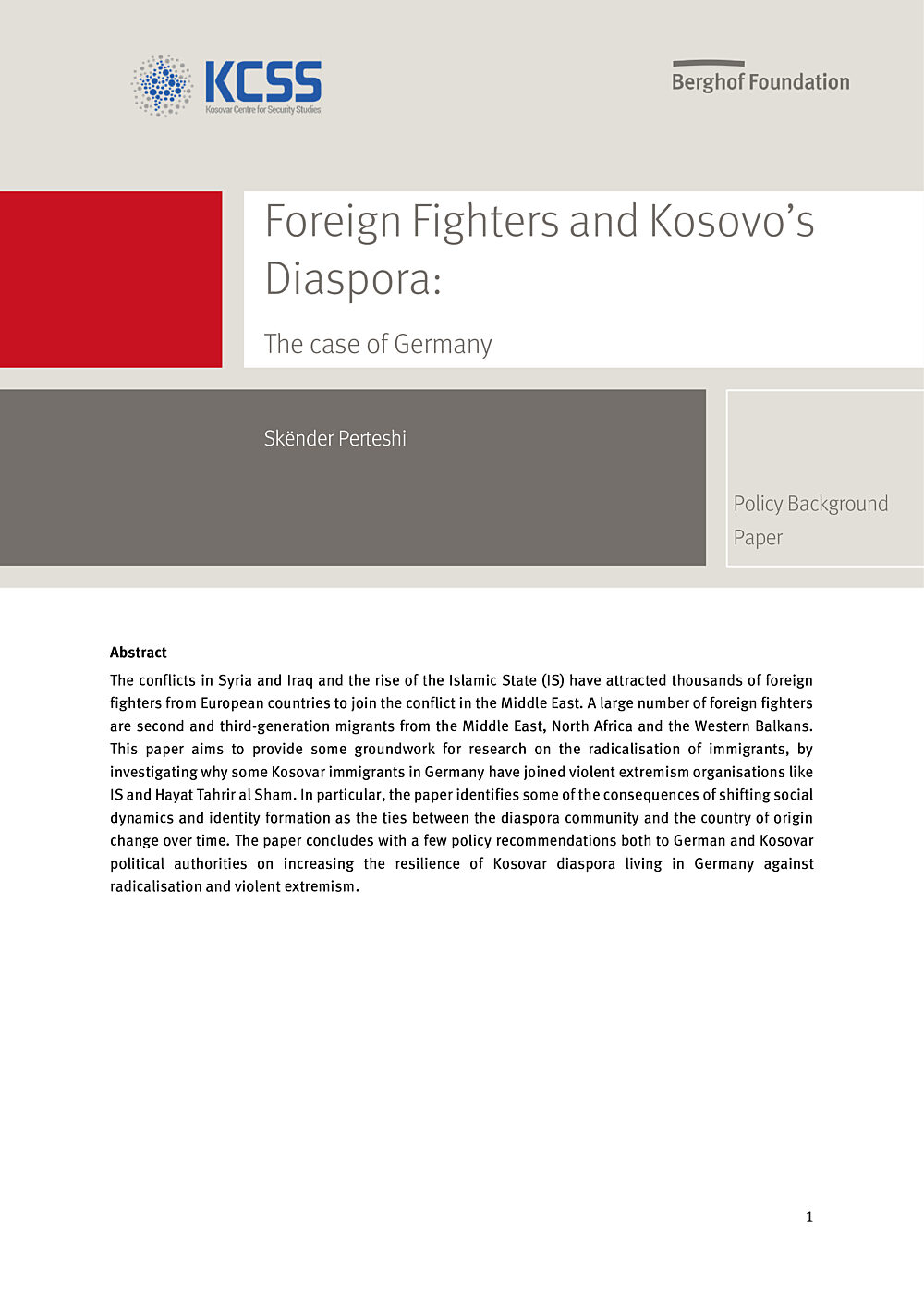
Foreign Fighters and Kosovo’s DiasporaThe case of Germany
The conflicts in Syria and Iraq and the rise of the Islamic State (IS) have attracted thousands of foreign fighters from European countries to join the conflict in the Middle East. A large number of foreign fighters are second and third-generation migrants from the Middle East, North Africa and the Western Balkans. This paper aims to provide some groundwork for research on the radicalisation of immigrants, by investigating why some Kosovar immigrants in Germany have joined violent extremism organisations like IS and Hayat Tahrir al Sham. In particular, the paper identifies some of the consequences of shifting social dynamics and identity formation as the ties between the diaspora community and the country of origin change over time. The paper concludes with a few policy recommendations both to German and Kosovar political authorities on increasing the resilience of Kosovar diaspora living in Germany against radicalisation and violent extremism.
- Year2020
- Author(s)Skënder Perteshi
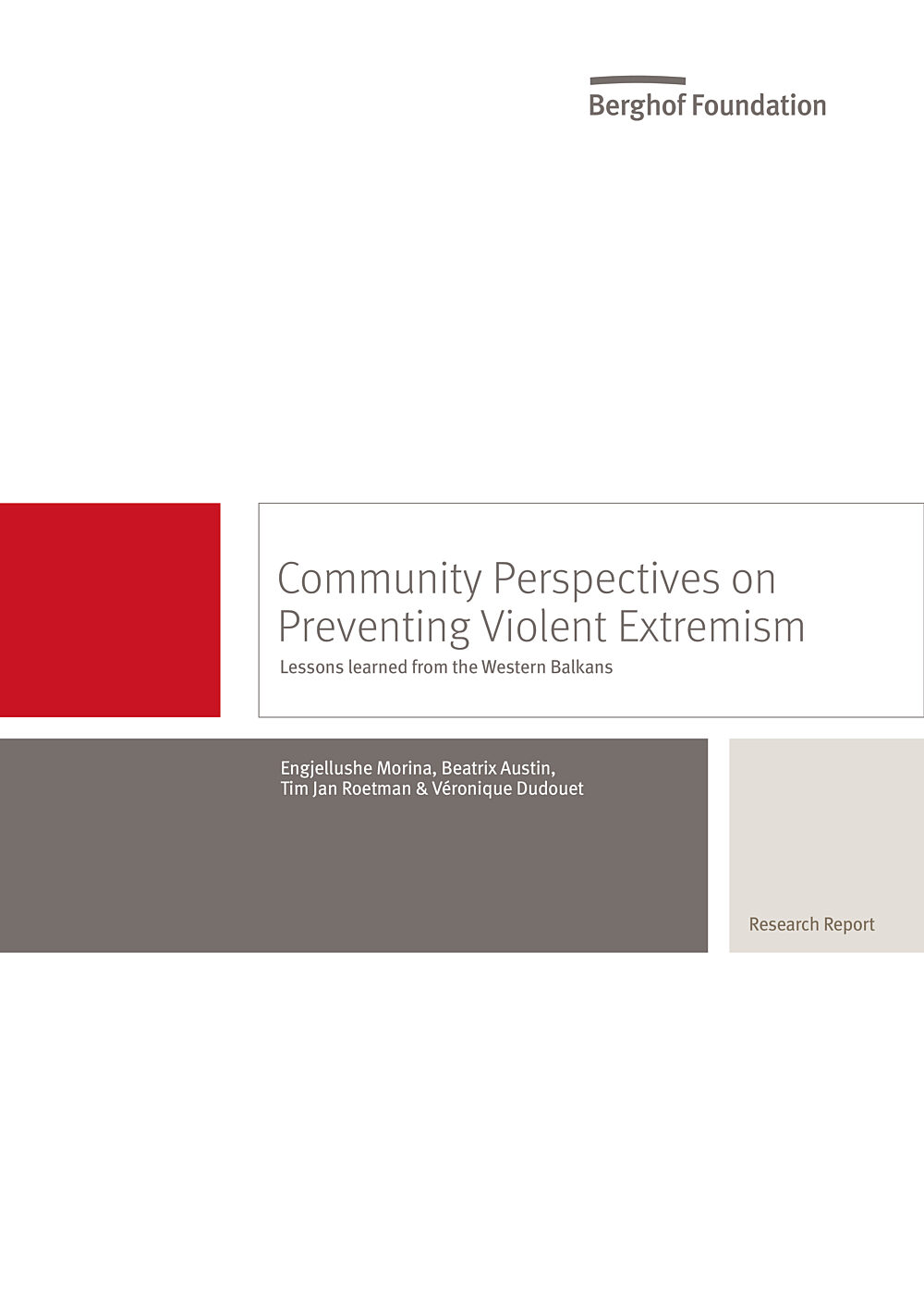
Community Perspectives on Preventing Violent ExtremismLessons learned from the Western Balkans
This comparative synthesis report – building on four country case studies covering Albania, Bosnia and Herzegovina, Kosovo and Macedonia – was produced in the framework of a participatory research project on “Opportunities for Preventing Violent Extremism in the Western Balkans”. Together with with four local research partners, we explore why some communities are particularly affected by individuals inspired by and/or joining the Islamic State (IS) or similar violent extremist groups, while other communities may show greater resilience to the same phenomenon. The project also includes policy outreach activities, both nationally and internationally, as well as local dialogue initiatives, in cooperation with local stakeholders and affected communities, in order to explore and develop strategies to prevent violent radicalisation in the Western Balkans in light of the research findings.
- Year2019
- Author(s)Engjellushe Morina, Beatrix Austin, Tim Jan Roetman, Véronique Dudouet
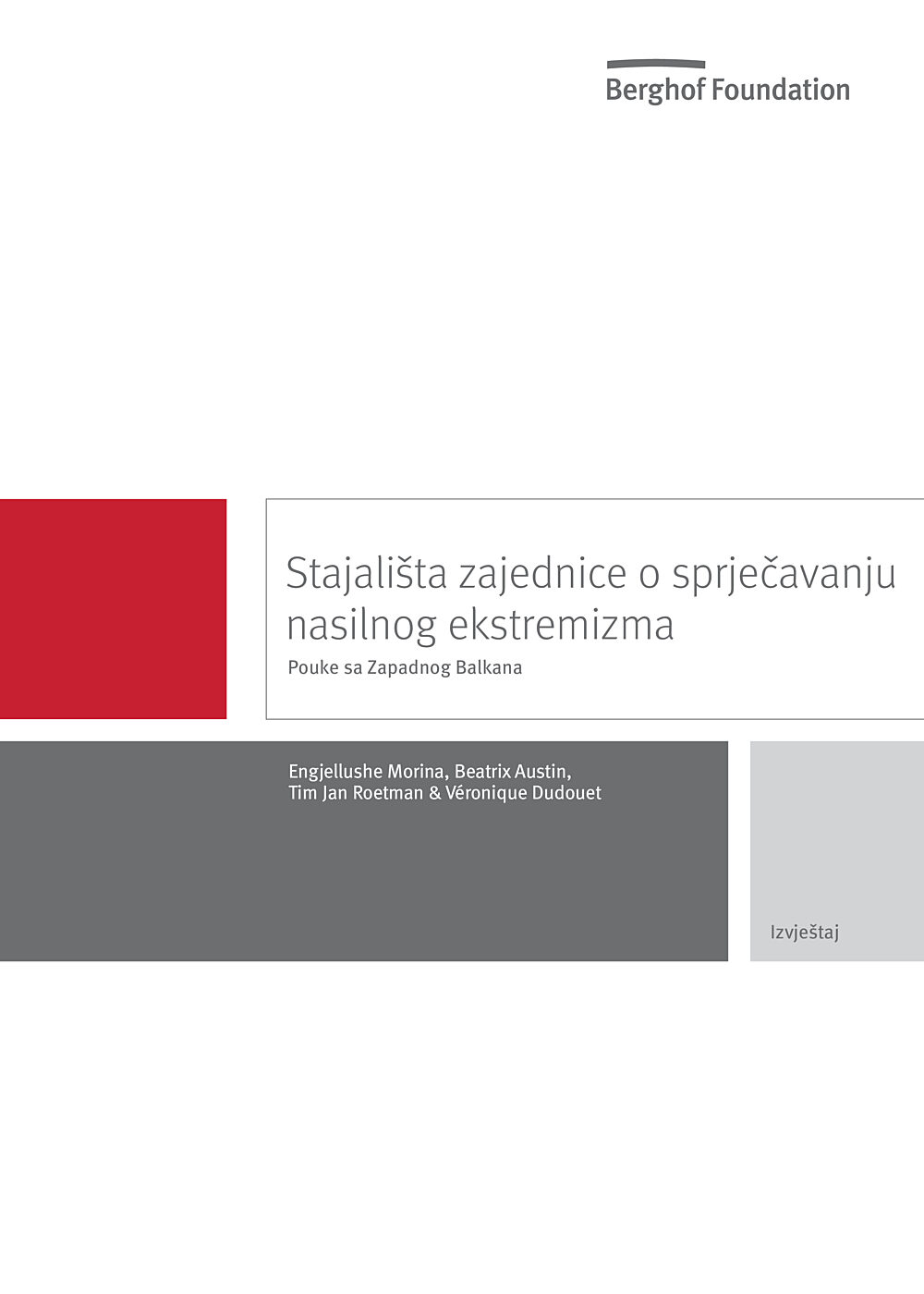
Stajališta zajednice o sprječavanju nasilnog ekstremizmaPouke sa Zapadnog Balkana
Ovaj komparativni konsolidirani izvještaj, koji se temelji na četiri studije slučaja koje pokrivaju Albaniju, Bosnu i Hercegovinu, Kosovo i Makedoniju, izrađen je u okviru participatornog istraživačkog projekta nazvanog „Prilike za sprječavanje nasilnog ekstremizma na Zapadnom Balkanu”. Zajedno sa četiri lokalna istraživačka partnera, ispitivali smo zašto u nekim zajednicama ima mnogo pojedinaca koje inspirira Islamska država (IS) ili koji se pridružuju njoj ili sličnim ekstremističkim grupama, dok druge zajednice pokazuju veću otpornost na tu istu pojavu. Projektom su bile obuhvaćene i aktivnosti prikupljanja podataka od relevantnih aktera neophodnih za formuliranje politika, u zemlji i na međunarodnom novu, kao i lokalne inicijative za pokretanje dijaloga, u saradnji sa lokalnim akterima i pogođenim zajednicama, da bi se ispitale i razvijale strategije za sprječavanje nasilne radikalizacije na Zapadnom Balkanu u kontekstu nalaza ovog istraživanja.
- Year2019
- Author(s)Engjellushe Morina, Beatrix Austin, Tim Jan Roetman, Véronique Dudouet
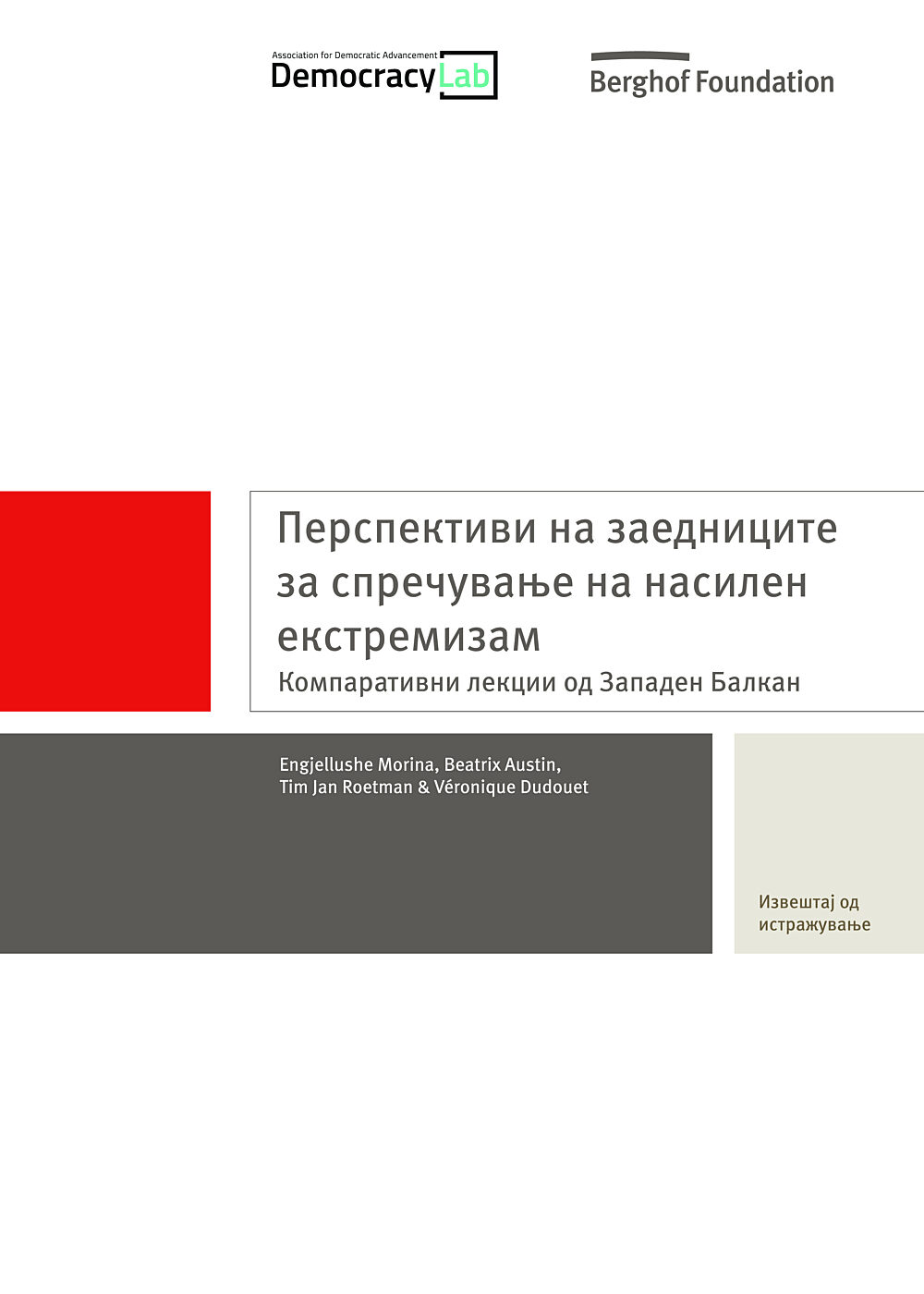
Перспективи на Заедницата за Спречување на Насилен ЕкстремизамКомпаративни лекции од Западен Балкан
Овој компаративен извештај нуди сознанија од заеднички истражувачки проект, комбиниран со иницијативи за дијалог со заедницата, спроведени во 2017/18 год. во четири земји од Западен Балкан: Албанија, Босна и Херцеговина, Косово и Македонија. Разбирливо, четирите земји вклучени во студијата имаат многу сличности кои се вкоренети во заедничките историски незадоволства, но исто така се поврзани со неразвиени економии, лошо владеење и административна дисфункционалност, национални и етнички тензии и нерешени прашања со идентитетот. Истражувачкиот проект се фокусираше на мезо ниво и се обидe да ги идентификува факторите на ранливост и отпорност на заедницата на насилниот екстремизам и да ги формулира и тестира препораките изготвени од градењето на мирот за делотворно спречување на насилен екстремизам (СНЕ). Со цел откривање и разбирање на она што ги прави заедниците отпорни на насилниот екстремизам, истражувачите ги анализираа карактеристиките на заедниците во одреден социо-економски, идеолошки и политички контекст.
- Year2019
- Author(s)Engjellushe Morina, Beatrix Austin, Tim Jan Roetman, Véronique Dudouet